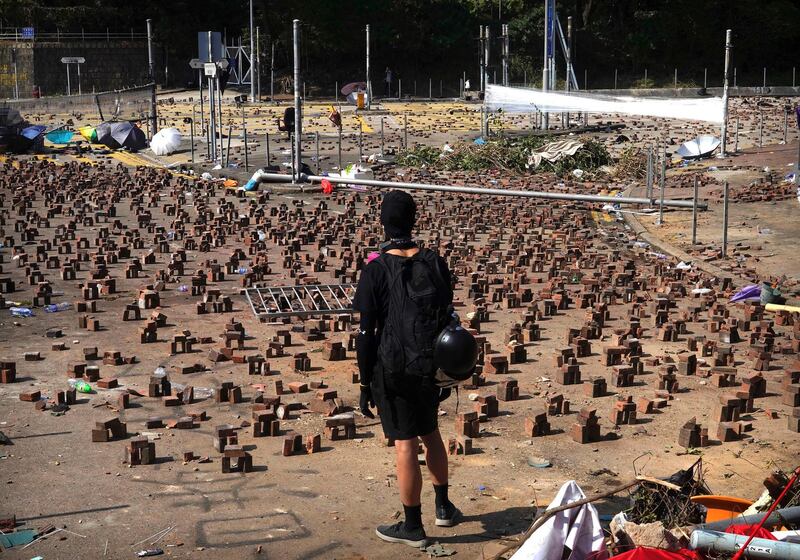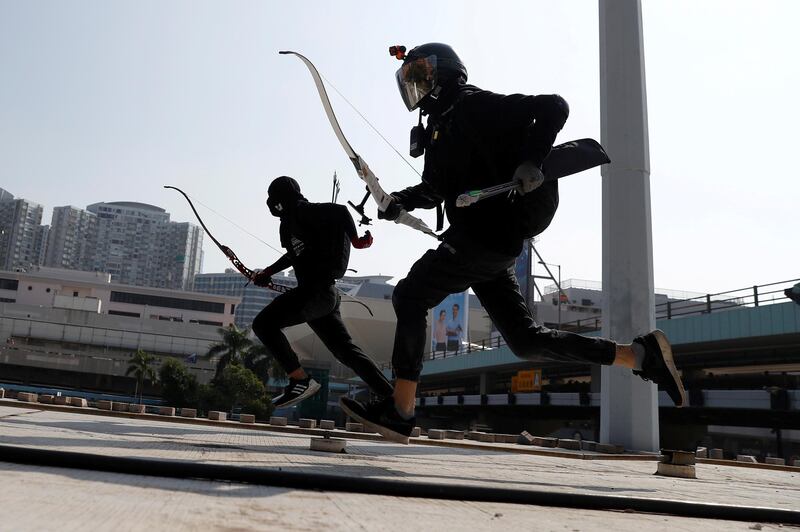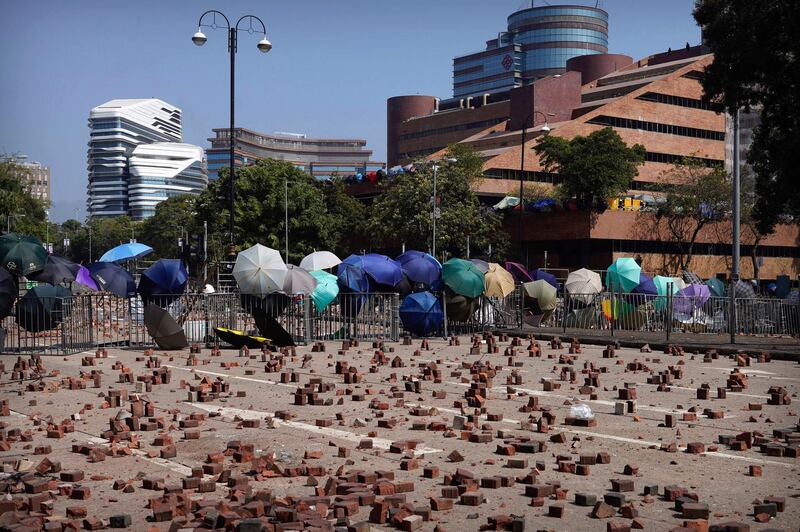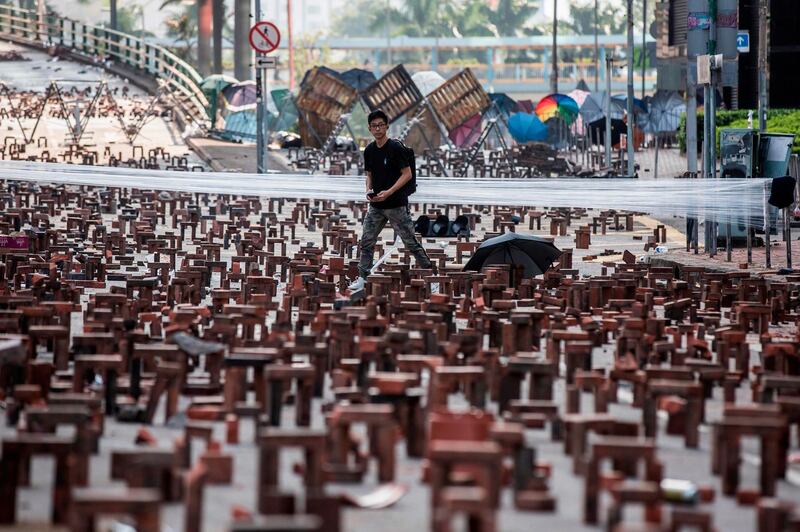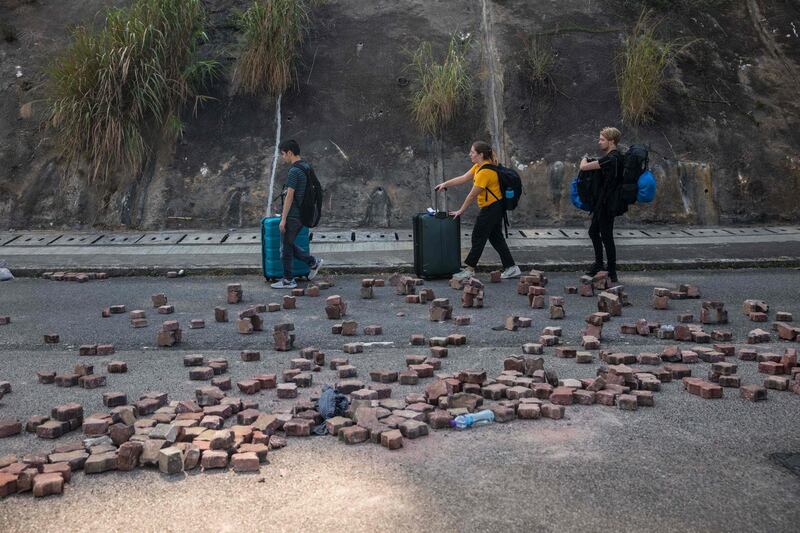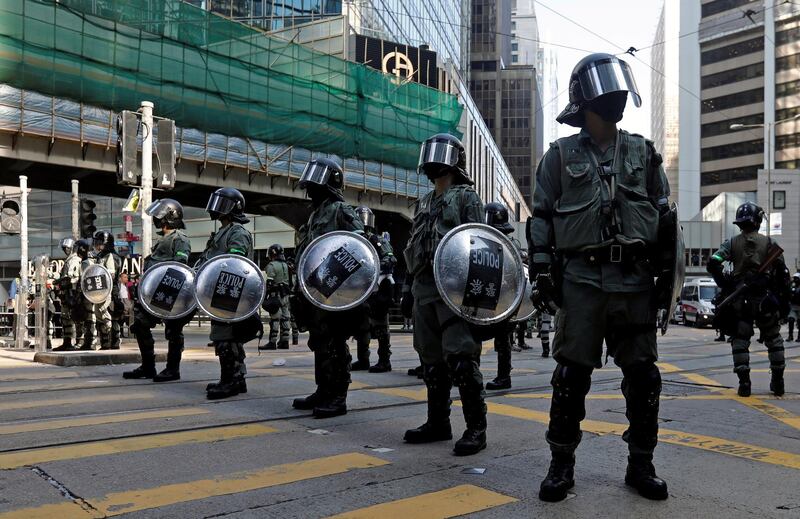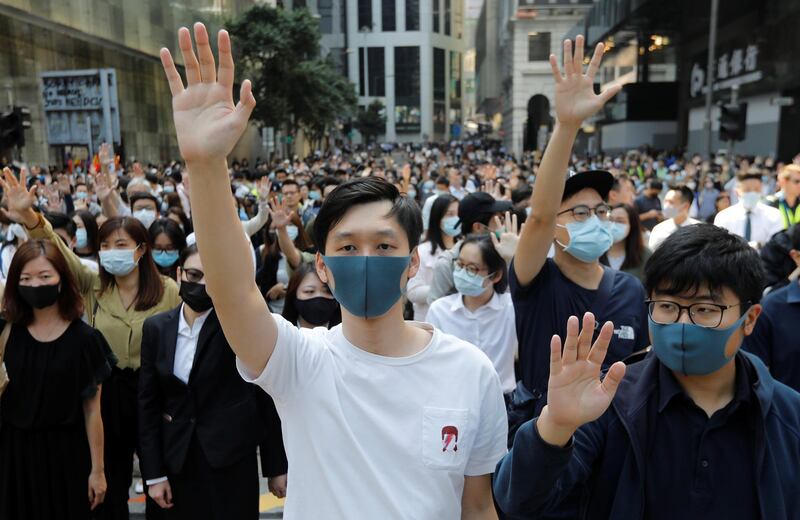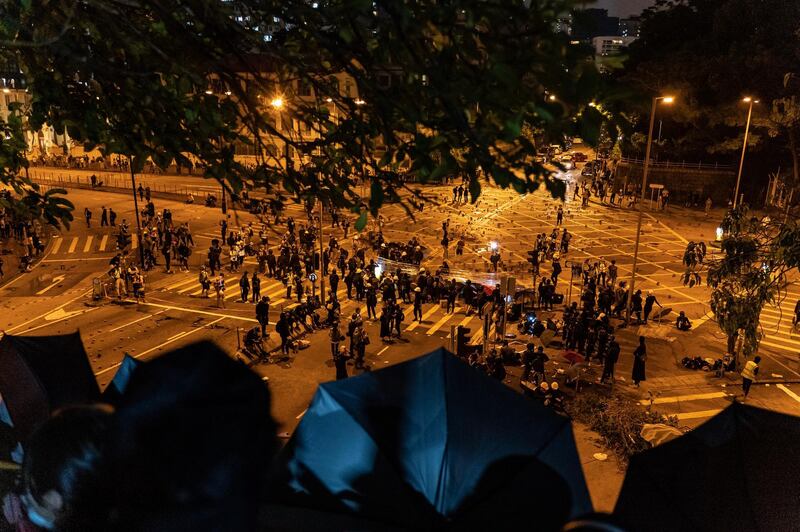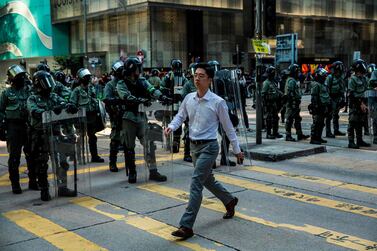Thousands of pro-democracy protesters took to Hong Kong's streets on Friday, defying a warning by Chinese President Xi Jinping, as a campaign of mass disruption extended into a fifth straight day.
Black-clad protesters also occupied university campuses, while office workers endured another day of transport chaos with suspensions on the vandalised train network and roads blocked by barricades.
Hong Kong has seen relentless protests since June as many in the city of 7.5 million people have vented fury at eroding freedoms under Chinese rule.
Those protests had been mainly in the evenings and on weekends, allowing the international financial hub to still function relatively smoothly during the week albeit with its economy dragged into recession.
With China offering no concessions, protesters switched tactics on Monday when they launched a "blossom everywhere" campaign to cause as much disruption as possible across Hong Kong and overwhelm the police force.
Their actions through the week have caused chaos across Hong Kong and been accompanied by intensifying violence from both sides – two people have died in a week in incidents linked to the protests.
The five-day strike has also seen major universities become hubs for the protesters – the first time a movement characterised by its fluidity and unpredictability has coalesced at fixed locations.
Violence from both sides has also escalated, and tensions have spilt overseas.
On Thursday night Hong Kong Justice Secretary Teresa Cheng fell in London after being surrounded by pro-democracy protesters, in the most physical confrontation involving a member of cabinet since the unrest began.
Hong Kong leader Carrie Lam on Friday condemned the incident, describing it as a "barbaric attack".
Ms Cheng walked away from the confrontation without any visible signs of injury. British police said they were investigating the incident, which drew condemnation from Beijing and an accusation that Britain was fuelling unrest in its former colony.
"If the British side does not change its wrong practices, and continues to add fuel to the fire, sow discord and instigate others, and make false countercharges, then it will bring calamity on itself," foreign ministry spokesman Geng Shuang said.
On Friday a "Lunch With You" event saw thousands of mainly office workers take to the city's streets, many chanting "Stand with Hong Kong" and raising an open hand with five fingers splayed.
The hand sign refers to the five demands of the protest movement, which include the right to freely elect Hong Kong's leaders, as well as an independent inquiry into alleged police brutality.
"The government did not respond even when two million residents marched peacefully," a 25-year-old office worker who gave her surname as Wong said in the city's Central district, in reference to huge rallies that were a feature of the start of the movement.
"Now when the police are abusing their power the government ... only thinks protesters are the problem."
The unrest was triggered by opposition to the Hong Kong's government plan to introduce a law allowing extradition of criminal suspects to mainland China.
The government belatedly withdrew the bill months into the unrest, but by then the protests had morphed into a much wider campaign for democratic freedoms and against the police.
Chinese President Xi on Thursday backed Ms Lam and the police force, while warning the protest movement was threatening the "one country, two systems" principle governing the semi-autonomous city.
Hong Kong has been ruled by a unique system guaranteeing greater freedoms than on the mainland since its handover from British rule to China in 1997.
Mr Xi said "stopping violence and controlling chaos" was the top priority.
With the crisis deepening by the week, fears have grown that Mr Xi's patience will run out and Chinese troops will be deployed in Hong Kong.
The Global Times, one of the arms of the Chinese state media, on Thursday fuelled tensions with a tweet reporting that a curfew was imminent.
The newspaper quickly withdrew the tweet and the Hong Kong's government denied a curfew was planned.
But Chinese state media continued to pile on the pressure on Friday, calling for tougher action from the government and indicating a curfew was still on the cards.
"While it remains to be seen whether a curfew will be introduced, tougher action is undoubtedly called for," the China Daily, an English-language newspaper, said in an editorial.
Chinese media has repeatedly seized on violence from the protesters as justification for a crackdown.
A 70-year-old man died on Thursday from injuries sustained a day earlier when he was hit by a brick during clashes between protesters and people angry with them.
Police on Friday said they had opened a murder case into the man's death.
On Monday a man arguing with protesters was set on fire by a black-clad masked person, with the incident caught on camera and posted online.
On the same day, a police officer shot an unarmed protester at close range.
